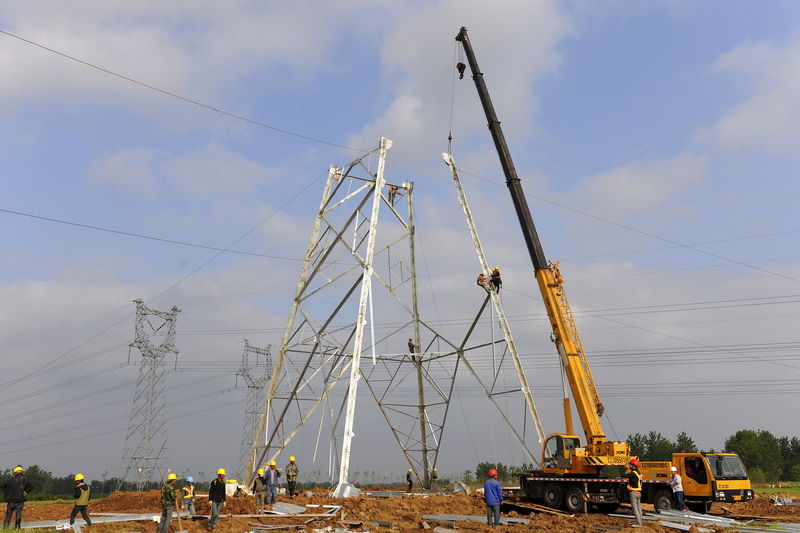Gold bars to be exempt from tariffs, White House clarifies
By Gina Lee
Investing.com – China recorded a surprise growth in factory activity in November, the first in three months, as a surge in raw material prices and power rationing both eased.
National Bureau of Statistics (NBS) data released earlier in the day showed that the manufacturing purchasing managers index (PMI) was at 50.1 in November, higher than the 49.6 figure in forecasts prepared by Investing.com and the previous month’s 49.2 figure.
The non-manufacturing PMI was at 52.3, higher than the previous month’s 52.4 figure. Both indexes were above the 50-mark indicating growth.
"A series of recently introduced policies and measures to ensure energy supply and stabilize market prices has been proven to be effective," NBS senior statistician Zhao Qinghe told Reuters.
"Power rationing eased somewhat in November while prices for some raw materials dropped significantly, driving an expansion in manufacturing PMI."
However, the manufacturing PMI could stay near the 50-mark for the months to come, due to constraining factors such as power curbs, high raw material prices, and weaker consumption, Hwabao Trust economist Nie Wen told Reuters.
New restrictions on manufacturing in northern China are already in place due to the Beijing Winter Olympics, due to take place in February 2022.
In the services sectors, the latest lockdown measures due to COVID-19 outbreaks have weighed on services activity, but an uptick in construction has improved sentiment.
As China’s economic recovery from COVID-19 continues to slow down, the GDP is set to slow down further in the fourth quarter of 2021. Premier Li Keqiang has acknowledged that the economy faces new downward pressures but added that authorities should avoid "aggressive" one-size-fits-all policy responses.
Investors now await the Caixin manufacturing and services PMIs, due later in the week.
